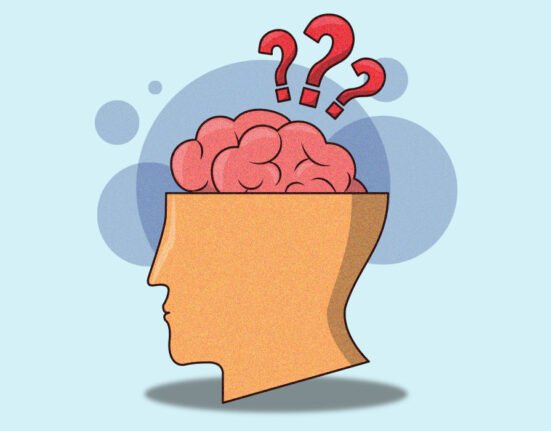“There are only two industries that call their customers ‘users’: illegal drugs and software”
-Edward Tufte
Whenever you buy something new, don’t you interrogate about the product? Don’t you try to get all the information possible about it, all the pros and cons? But why do you do that? Because you are going to consume that product and you want the best, is that right? Now how much did you think before installing any of the social media apps? Did you try to think or investigate that how does it work? What are the pros and cons? You sure know all about the pros but how much do you know about the cons? So let’s shed light upon how social media works and manipulates human psychology.
Artificial Intelligence
If you are a consumer of a product then it’s very important that you are well versed with ‘artificial intelligence’. We all know what is human intelligence, the ability to learn, understand and adapt. Artificial intelligence is the intelligence of a machine. It’s is not natural rather a product of humans. How is it different from human intelligence? We are whole, we are alive, we have experiences which makes us wise and gives us wisdom, we learn from mistakes, we care and empathise whereas it’s the opposite for artificial intelligence. AI is not human, it does not care and it’s just profit oriented. The AI of social media works on certain algorithm. The best way to understand artificial intelligence is through Pinterest. Our pinterest feed is very personalized, meaning consists of posts which we search for and what we see the most. Artificial intelligence knows way more about you than you normally think it does. It knows what you see, when you see and for exactly how long you see. It knows all about your personality, your likes and dislikes, your moods, who you love, who are your friends, who you don’t like and everything else. So it shows you content on that basis.
Forming our opinions, likes and preferences:
You might think that your opinions, likes and preferences are actually solely yours. You have formed them. But whatever preferences or opinions you formed on the basis of content of social media- you were made to do so, they were being formed by social media. Whenever you see something on social media, they know that for how long you saw that and on that basis they will show you related content. The related contents will pop up on your feed over and over again. You will be exposed to them repeatedly. There’s a phenomena in psychology ‘repeated exposure’ which means that people generally acquire preferences for things because of being repeatedly exposed to it. In social psychology, this is known as ‘familiarity principle’ which is also used to change attitudes. People working in the marketing sector of these big social media companies are familiar with these principles and they know exactly how human mind works and they have created technologies to exploit our minds because the general population of humans don’t know how their mind works, which is why we are being exploited. Our preferences and likes are being generated by technologies because of the default setting of our mind and now they have hacked our mind.
“Any sufficiently advanced technology is indistinguishable from magic”
-Arthur C. Clarke
The two faced hypocrite truth:
In the social media world there is no reality because there’s always something that will contradict the reality. You think that what you see is the reality, but it’s just the artificial intelligence showing you what you want to see, what sooths you, but not any reality. Someone else might be seeing the totally opposite of what you are seeing, something that sooths that person and that would be the reality for that person. So how can there be two realities? According to a research, fake news on twitter spreads six times faster than the true news. Because of so much data being available on social media, it becomes a huge task to extract authentic, verifiable news from fake news. This is how social media construct our opinions. You want to think that what you know is the absolute truth, but think a thousand times before you think this way. This is also how group polarization occur in society. It occurs when two groups form extreme or poles apart attitude take extreme decisions. It is also one of the cause of inter communal violence and hatred. Social media is also the birth place of conspiracy theories, because it is very easy to spread some news over the social media at a very cheap price. There are many evidences of intergroup violence and hatred which stemmed from social media.
The rewarding system:
It works on positive intermittent reinforcement schedule principle of operant conditioning by B.F Skinner. Reinforcement is like reward, intermittent means occurring at irrelevant intervals so, positive intermittent reinforcement means ‘a positive rewards given at irrelevant intervals after a particular behaviour’. Now how it actually works? Whenever you pull down or refresh your social media feed or newsfeed, there’s something new for you at the top- but there’s this uncertainty about getting something new and because of this uncertainty we keep on refreshing and that’s what the social media wants from us as users. For example, if your phone is kept in front of you and is locked, do you feel this urge to check your social accounts if there’s something new for you or not? Because sometimes you get something new, something you want and sometimes you don’t- you may become an addict (because of this uncertainty principle). Whenever you see something you want or like, you feel good because of the chemical- dopamine being released in certain parts of your brain. Dopamine gives you the feeling of pleasure and we all like pleasure and want it. Which is by we keep on going back to our social media account to feel that dopamine hit. This is how the social media attracts us towards it. But how does it keep us engaging into it?
The engagement:
It provides short term rewards- like, thumps up, comments. For us it’s valuable because people like it, they conform with you, they are validating you, your opinion, your beauty or your lifestyle. But it’s short-term, it’s brittle, easily broken and leaves us empty. It can’t last forever like every trend dies, the same way people will not keep on liking your picture forever, a picture can only be liked once and it only comes one time in anyone’s feed. So to fill that vacant, hollow and void feeling because you want that reward again and you’ve learned how to achieve it, you keep on posting pictures, videos and keep on grasping people’s validation, without awareness. This is how they keep us engaged and this is how they make revenue.
The cunning notification
Whenever there’s a notification of ‘someone tagged you’, ever wondered that they don’t show the picture but just tells you that this person tagged you. It’s because they want us to open their app and see the picture, they used showed you a trailer or a trap to allure you into it and you fell for it. Then you would check your feed to see whether there’s something new for you or not to get that dopamine hit and before you know it, you’ve spent one hour just scrolling and going through the ads and they made money. Whenever you sent a message and you see that the other person is ‘typing’ do you stay in that chat box? You usually stay because we know that a message a coming and there’s no uncertainty and you wait. Try chatting on text message, you’ll get bored and start doing something else before you receive a reply because you don’t know that the person is tying or not, there’s uncertainty and you don’t wait hence you are not engaged.












Leave feedback about this